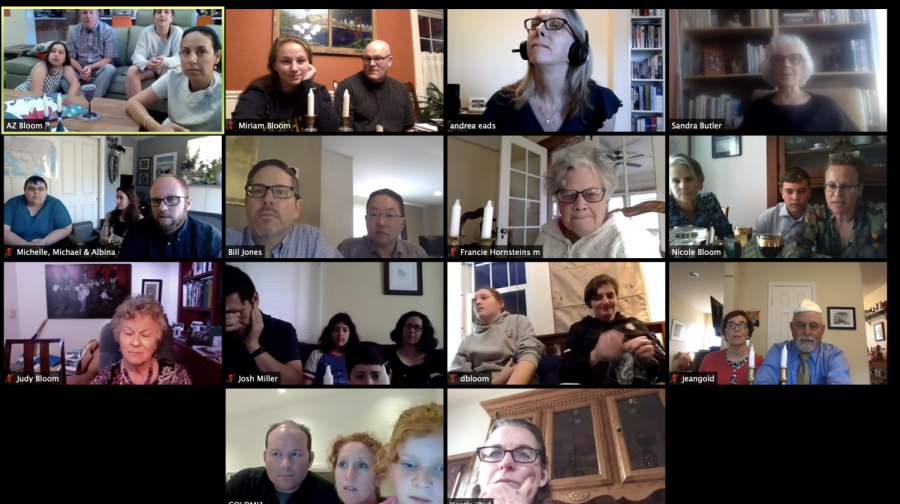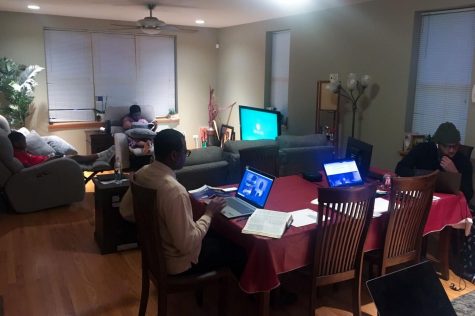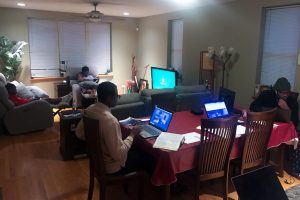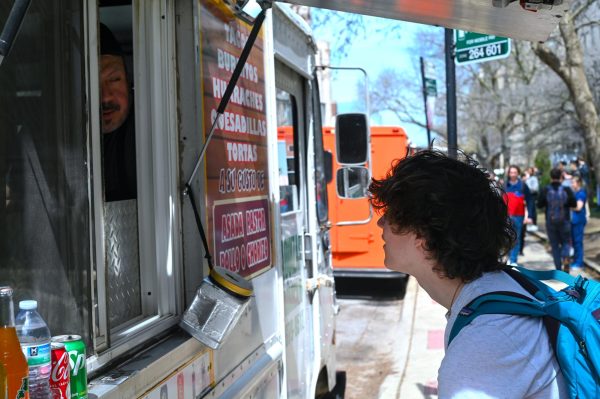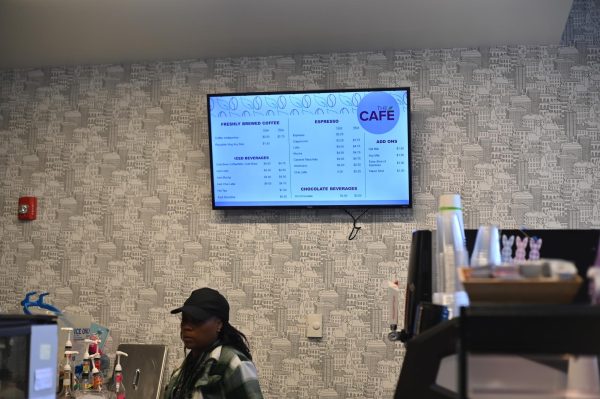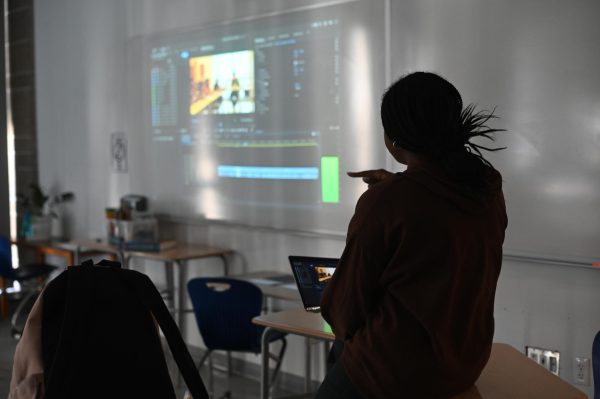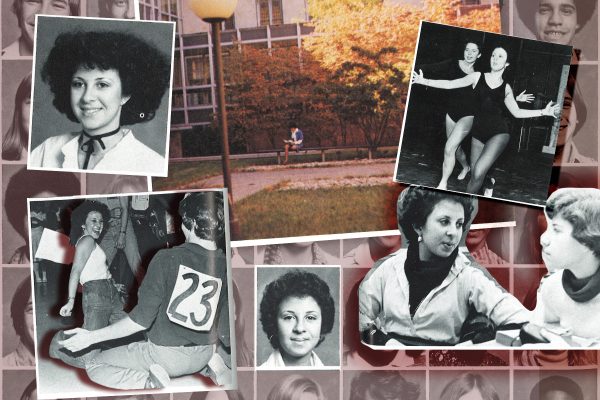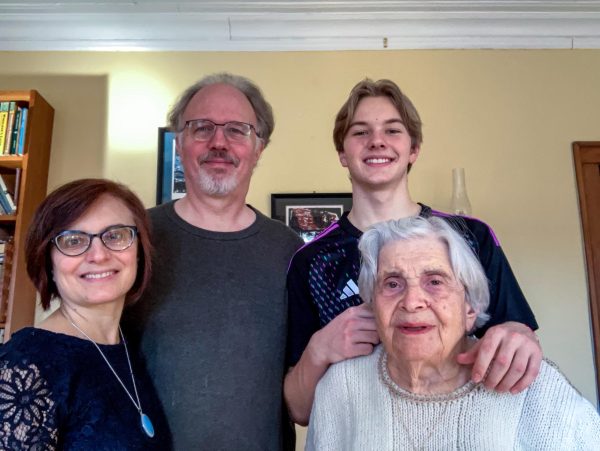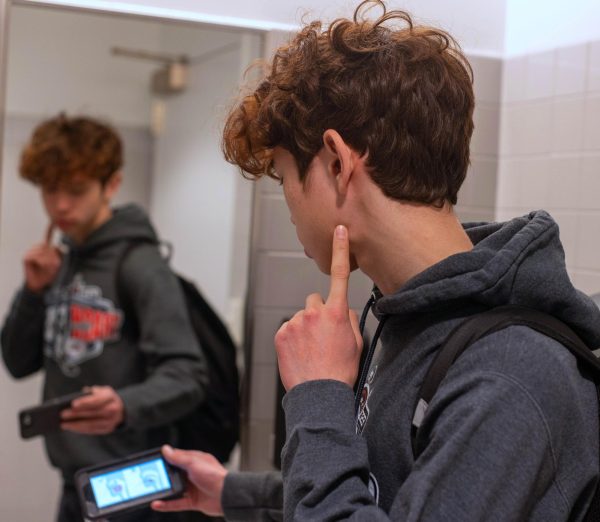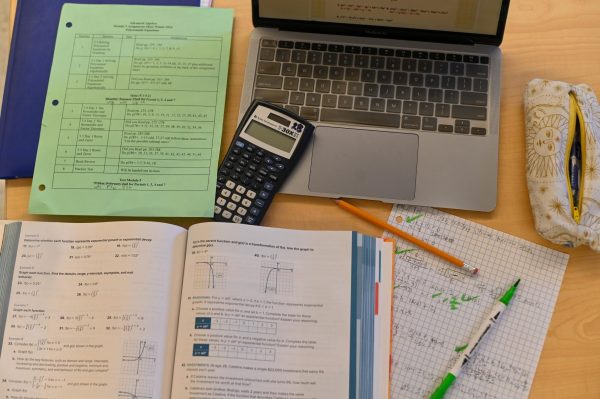Zooming in: Families celebrate religious holidays remotely
Screenshot by Miriam Bloom
The extended family of Miriam Bloom gathers over Zoom to celebrate her cousin’s Bar Mitzvah on April 3, performing the Shabbat service before the Bar Mitzvah. The ceremony was planned to happen April 4 in California, but was moved to Zoom when the stay-at-home order for COVID-19 was instituted.
At sundown on April 8, Vivi Corré joined her mom as they go through the now-familiar process of starting up a Zoom call. Only that night, instead of attending a class or a gathering of friends, Vivi and her mom celebrated the first night of the Jewish holiday Passover by holding the traditional Seder gathering over Zoom.
Vivi and her mom are one of the U-High families who have moved their religious observances online. There are some benefits to gathering and worshipping this way, but, especially for the significant holidays of Ramadan, Easter and Passover, it’s difficult being unable to celebrate with family, friends and community in person.
“I got to watch some Holy Week services this year that I ordinarily wouldn’t be able to because I’d be in school, which was pretty cool,” said Jayne Crouthamel, who is Orthodox Christian. “However, I definitely prefer gathering as a congregation, especially during important holidays such as Easter.”
Orthodox Christian Holy Week, a week of special services leading up to Easter, began on April 11 with Palm Sunday. Many traditions across Christian churches for Holy Week were severely limited by the remote nature of services. In particular, one of Jayne’s favorite services, a vigil service on the night before Easter, was changed.
Usually, she said, “The lights are shut off a little before midnight, then at midnight the priest lights a candle and that candle is used to light every other candle in the church in a ripple effect, and we all sing the traditional Easter hymn ‘Christ is Risen.’”
This year, she said, the priest had to keep the candle lighting in frame of a single camera streaming the process, losing much of the majesty that that service usually provides.
The Muslim month of Ramadan began on April 23, a holy month characterized by fasting during the day, reflection, prayer and community. According to junior Sana Shahul, who is Muslim, observing Ramadan remotely has required some changes to normal celebrations.
“Ramadan has been observed remotely by trying to make sure that we stick to the same routine, and emphasizing still this idea of community,” Sana said, “and I really like the flexibility in my schedule to wake up later as well as to pray more times than possible, because I was unable to pray a lot during school.”
I think, overall, just not having all of that time to be with my people and with my friends has been really hard, especially because Ramadan has such a big focus on community.
— Sana Shahul
However, she said much of the community aspect is harder to hold on to, since they cannot go to their mosque or celebrate with large groups of people.
“I think, overall, just not having all of that time to be with my people and with my friends has been really hard, especially because Ramadan has such a big focus on community,” Sana said.
Vivi, too, has missed out on some community interaction at Passover. Normally she and her mom would travel to meet friends in Skokie for a traditional Seder on the first night, which is one of her favorite parts of Passover, but they were unable to travel this year.
“I kinda really miss them and regret that I didn’t get to have that experience,” she said.
However, they were still able to hold most parts of the Seder, including the and the reading and discussing of the Haggadah, over Zoom, and they could host more people online than they would have in person.
“My extended family can normally never get together to have a Seder, because we live in really different parts of the country,” Vivi said, “but we could all get together over Zoom, which was nice.”
As these important holidays come through the Coronavirus pandemic, one thing is clear: students and families are supporting each other and managing the best they can.
Acknowledging that this Ramadan has been different, but not ultimately better or worse, Sana said, “Ramadan is going, I would say, but I’m very blessed to be here.”




